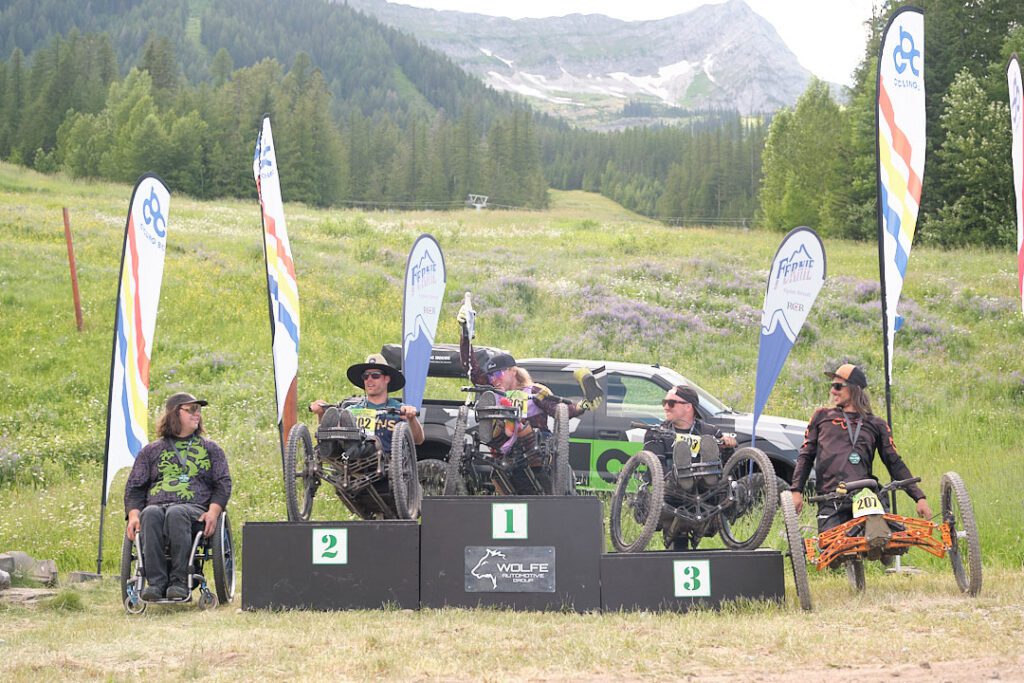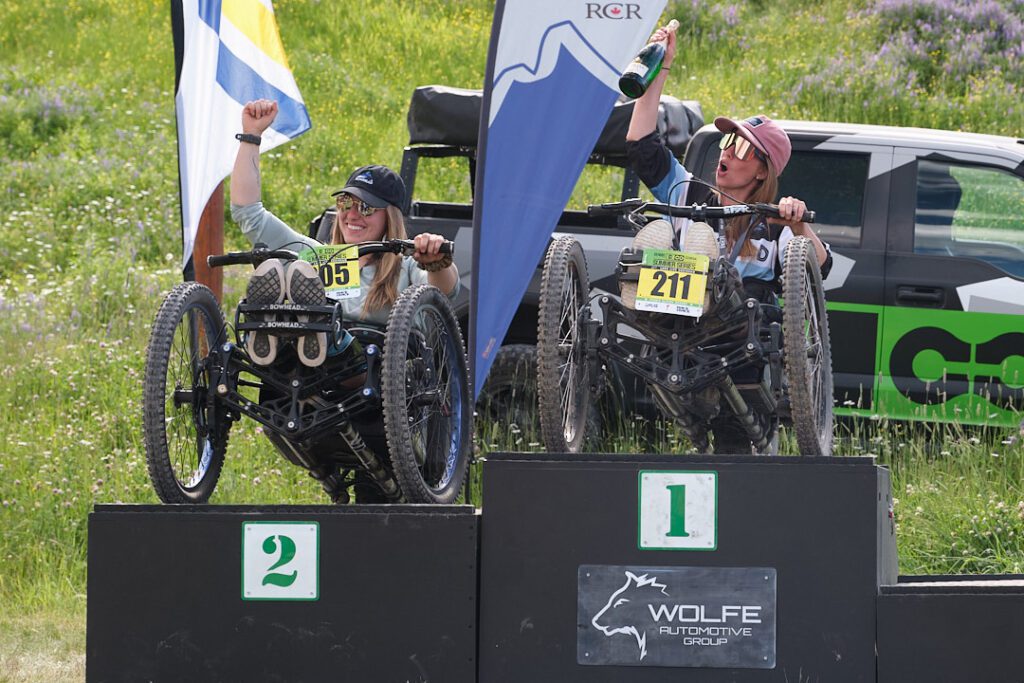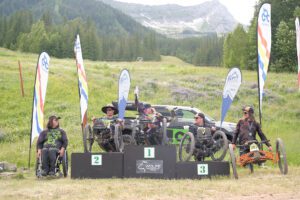What’s happening to aMTB downhill?
What stalled adaptive MTB's momentum, and what comes next
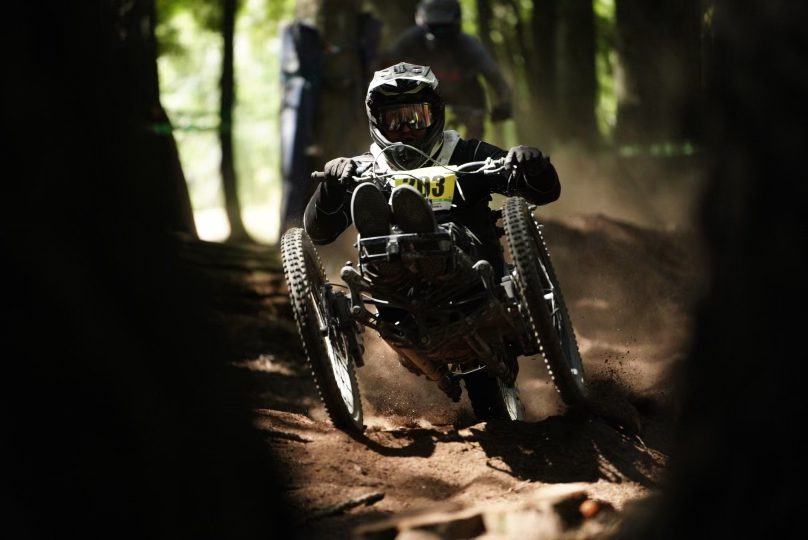 Photo by:
aMTB racing at 2022 Dunbar Summer Series. Photo: Niall Pinder
Photo by:
aMTB racing at 2022 Dunbar Summer Series. Photo: Niall Pinder
After a very successful debut, and even more exciting sophomore season, many riders and fans were surprised to see this week’s announcement that adaptive downhill mountain biking wouldn’t be returning to Dunbar Summer Series in 2023. Announcements from Kootenay Adaptive Sport Association (KASA) and Canadian aMTB Association (CAMBA) confirmed that aMTB would also be absent from BC Cup DH racing this season.
While all parties emphasized that they are already working to get aMTB DH back on track in 2024, the question of what happened to halt the 2023 season remains. Why hit the brakes when the sport was building momentum, and widely embraced by the downhill community?
RELATED: Looking back: aMTB’s arrival at the Dunbar Summer Series
We reached out to KASA CEO Mike Riediger to find out. He responded immediately, having come straight out of a meeting about the program’s insurance. Riediger was keen to emphasize that aMTB will be back in DH and that KASA, CAMBA and others are already hard at work creating a busy calendar of aMTB events for this summer.
Sounds like there are some big issues with insurance, including some issues specific to e-assists that are necessary for aMTB racing, but also a whole lot of work going on to make sure the groundbreaking Canadian aMTB scene keeps growing and progressing in the future.
Canadian MTB: The announcements list a few reasons for putting aMTB off this season: scheduling and practice time, and insurance problems. Can you please expand on those a little bit? Explain what the problem was and/or why it is difficult to fix?
Mike Riediger: Kootenay Adaptive(KASA) and the Canadian Adaptive Mountain Bike Association (CAMBA), along with SE Racing and Cycling BC have put in a lot of work, advocacy and development of adaptive racing and produced a number of world firsts in the process. Even with the amount of effort we have all put into this since 2020, the foundational elements of aMTB in an official sport setting are still lacking. Without these elements, it makes insurance difficult and quite expensive to acquire. Even worse, it puts a number of best practices in a bit of a liability grey area.
This doesn’t just affect us, this has ripple effects across North America, from racing to everyday adaptive programming. It truly does hurt to officially remove ourselves from sanctioned racing this year. A lot of people have put a lot of heart and soul into this but, in the end, this will put adaptive off-road racing in a much stronger place.
Insurance seems to be a growing concern for race organizers. Was there a change in insurance from last year to this year?
As if race classifications aren’t difficult enough, legal classifications that have an impact on insurance are a whole other beast. Race organizers all around have been hit with a massive increase in insurance costs this year. This may trend lower over the coming years, but this year will be a tough year for insurance. There are only a few insurers that work with mountain bike racing in the world and e-mtb racing is a contentious and very expensive thing to this day. (Many people may not even realize that depending on the options on their e-bikes, they may not even be covered under their home insurance.)
This is especially difficult in the adaptive world because the vast majority of adaptive cycles are e-powered or e-assist models. We are getting closer to an official answer and we hope to have it sorted soon, but that doesn’t mean it will be cheap. Last year, holes in insurance were exposed and we absolutely needed to put in the work to close those holes. We need our athletes and organizers to be protected and we will make sure that the end solution makes sense for everyone.
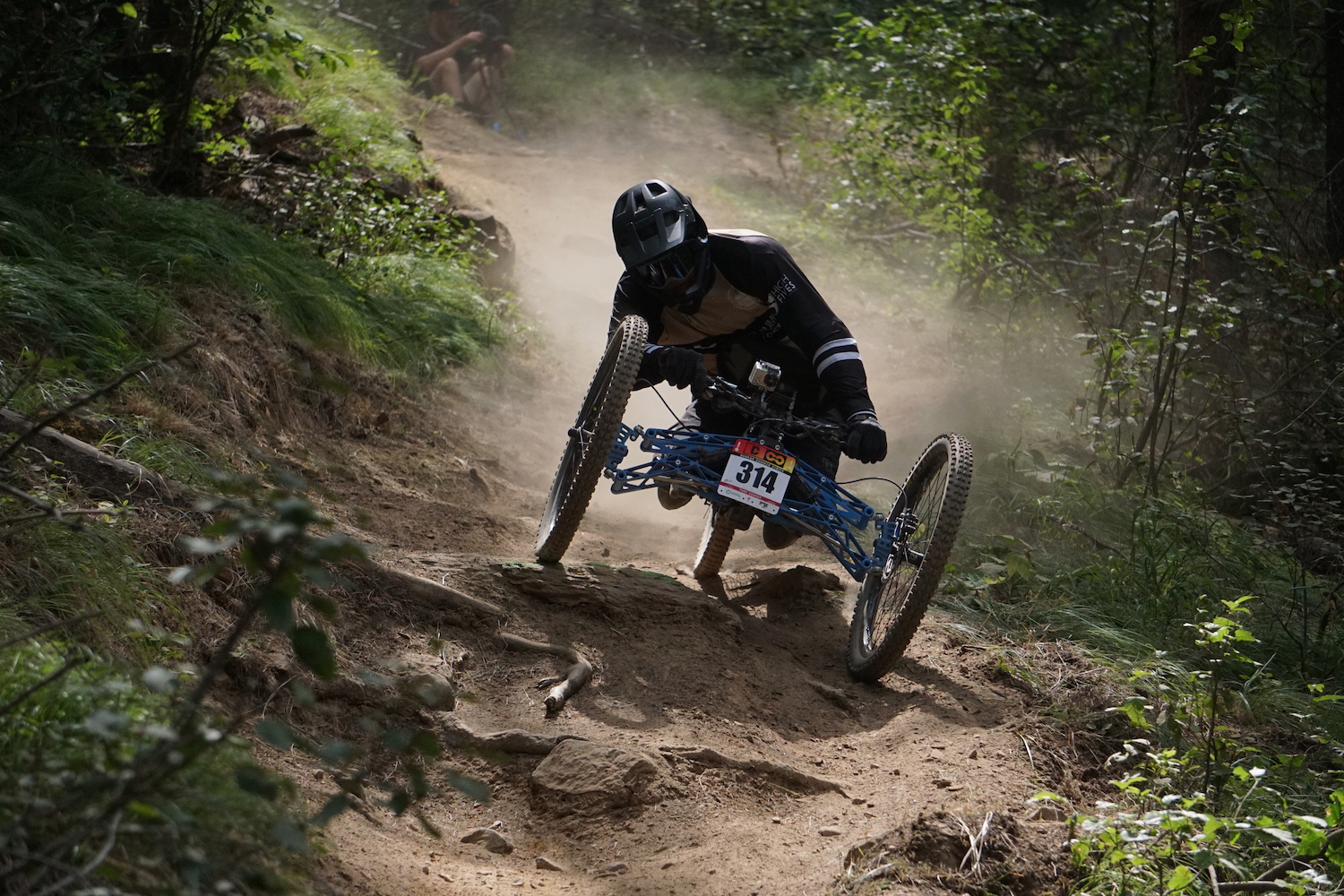
The aMTB community, with Dunbar and Cycling BC, accomplished a lot in the last two years. Momentum seemed to be building. How hard was it to call off the planned ’23 aMTB DH events?
Momentum in aMTB has been very exciting to watch and be a part of. The problem was always sustainability. To the best of our knowledge, we were the only ones putting in the time behind the scenes doing the work no one notices. That’s not just the half of a year of race planning that goes on before events, but all the work going into race technical guides for different disciplines, event guidelines, training for athletes, training for tail guides and so much more.
Many people don’t realize it’s not just as simple as a quick fix when it comes to racing, not just at the sanctioning level, but the layers of liability involved. It’s not easy. That doesn’t just go for a new category like aMTB, but for racing in general. And that work happens yearly, not just once.

There’s still the possibility of hosting stand-alone races and events in other disciplines. What are some of the projects in the works that people should be looking out for?
Absolutely, we have been hard at work looking for solutions with our provincial and national partners. We are getting closer to offering a number of events in partnership with existing events. These events, although not sanctioned this year, will still have the same feel.
However our purpose at them, besides being defacto commissars in many cases, will be to pour our work and research into the events and extract more information from them so we are able to build those foundations for aMTB. Just like every other discipline and sport has to.
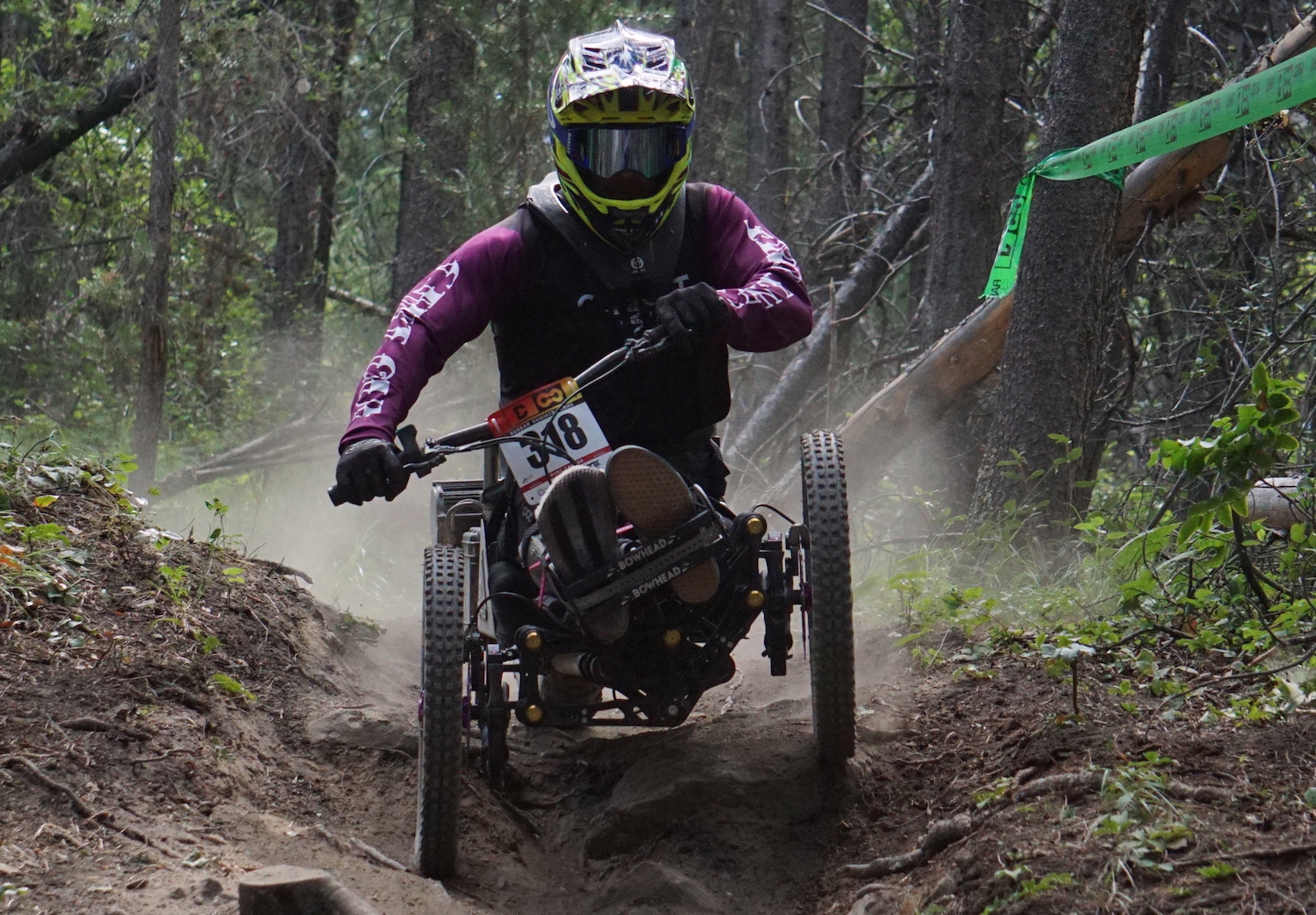
Part of what made aMTB at Dunbar (and BC Cup in ’22) was that it was the first aMTB DH series to run as part of an existing series. Why is integrating into an existing series – versus standalone events – so important?
Too often non profits, especially in the disability sphere, operate in silos away from the wider community. Integrating with an exisiting series brings communities together that share the same passion and excitement and it makes a sport that is traditionally exclusive in many ways, a lot more inclusive.
Integrating into the best downhill series in the country was beneficial for so many reasons. Learning from Stephen Exley, the teams and the athletes over the last two years was hugely beneficial to us. The best part of it was watching how seamless and natural everything felt on event days.
[Ed:Read the athlete’s perspective about why incorporating aMTB into existing events is so important in our interviews with Cole Bernier and Ethan Kruger]
Are there ways people reading at home can support, or get involved in aMTB?
When it comes down to it, funding for non-profits, especially those involved in development and research is very hard to come by. This is labor-intensive work and many grants do not fund that. I don’t think many of the athletes even know how much work goes into this and how little of it is funded.
In order to continue at this pace we need to be constantly on the lookout for new grants to apply for and be actively seeking donations to continue the work. These are all things that take time as well and take away from the work at hand. KASA does have access to charitable donation platforms and support, either financial or expertise, is greatly received by us and the wider community of adaptive athletes and organizations that will benefit from this work.
